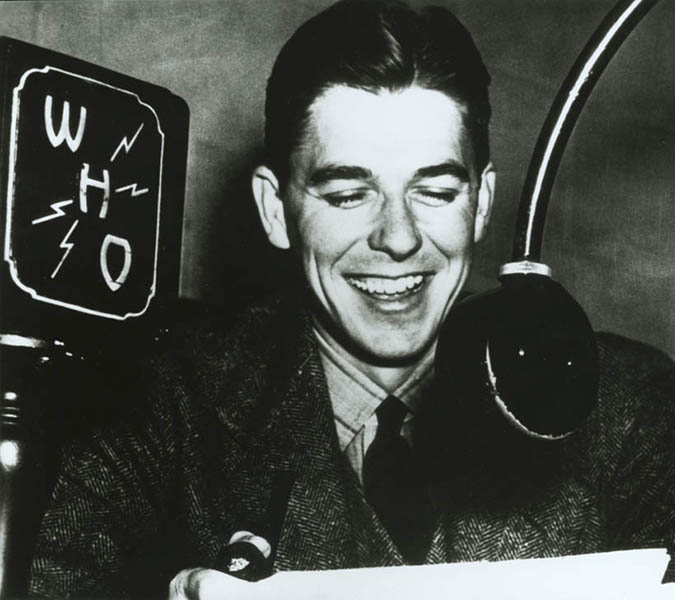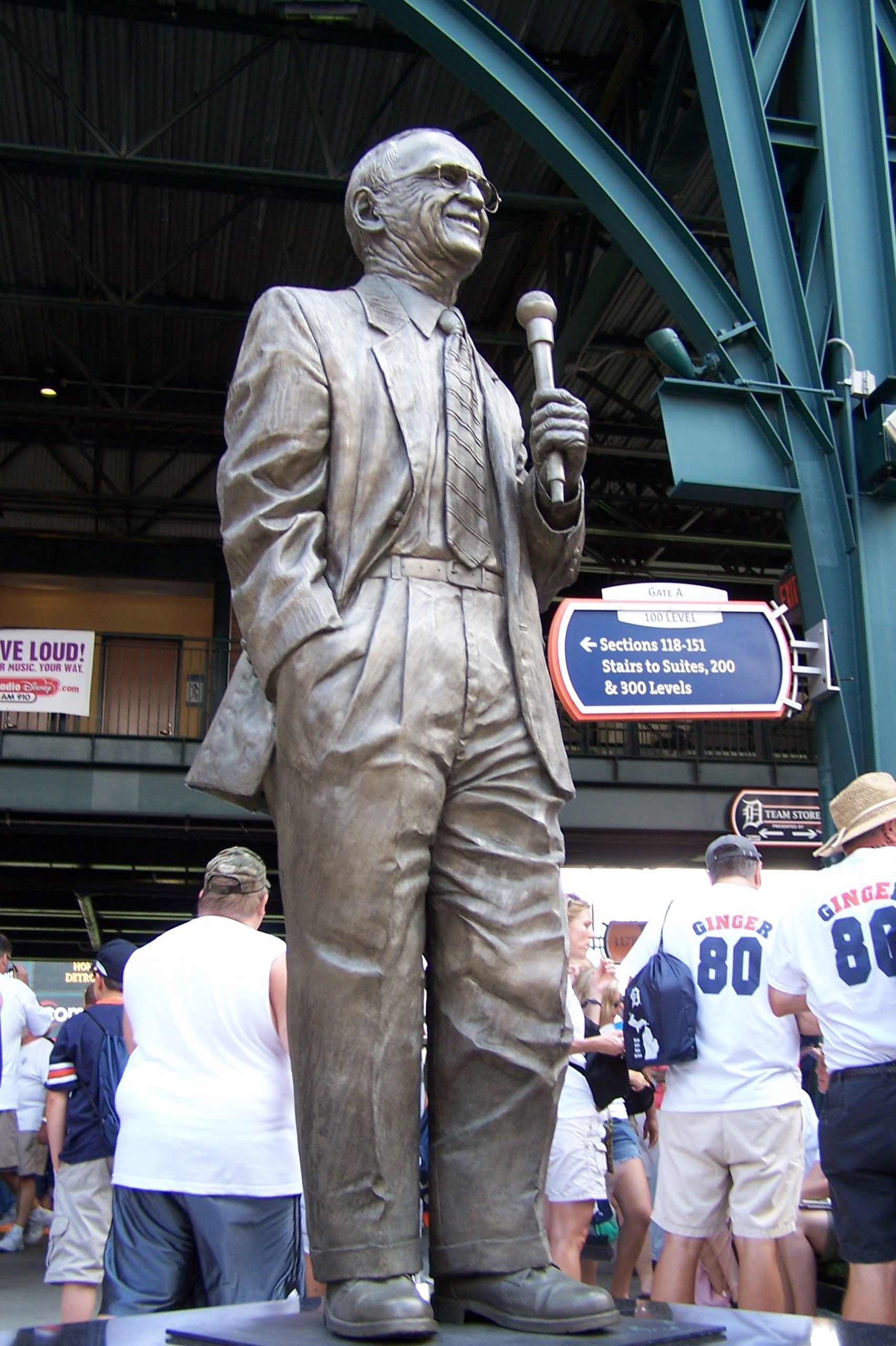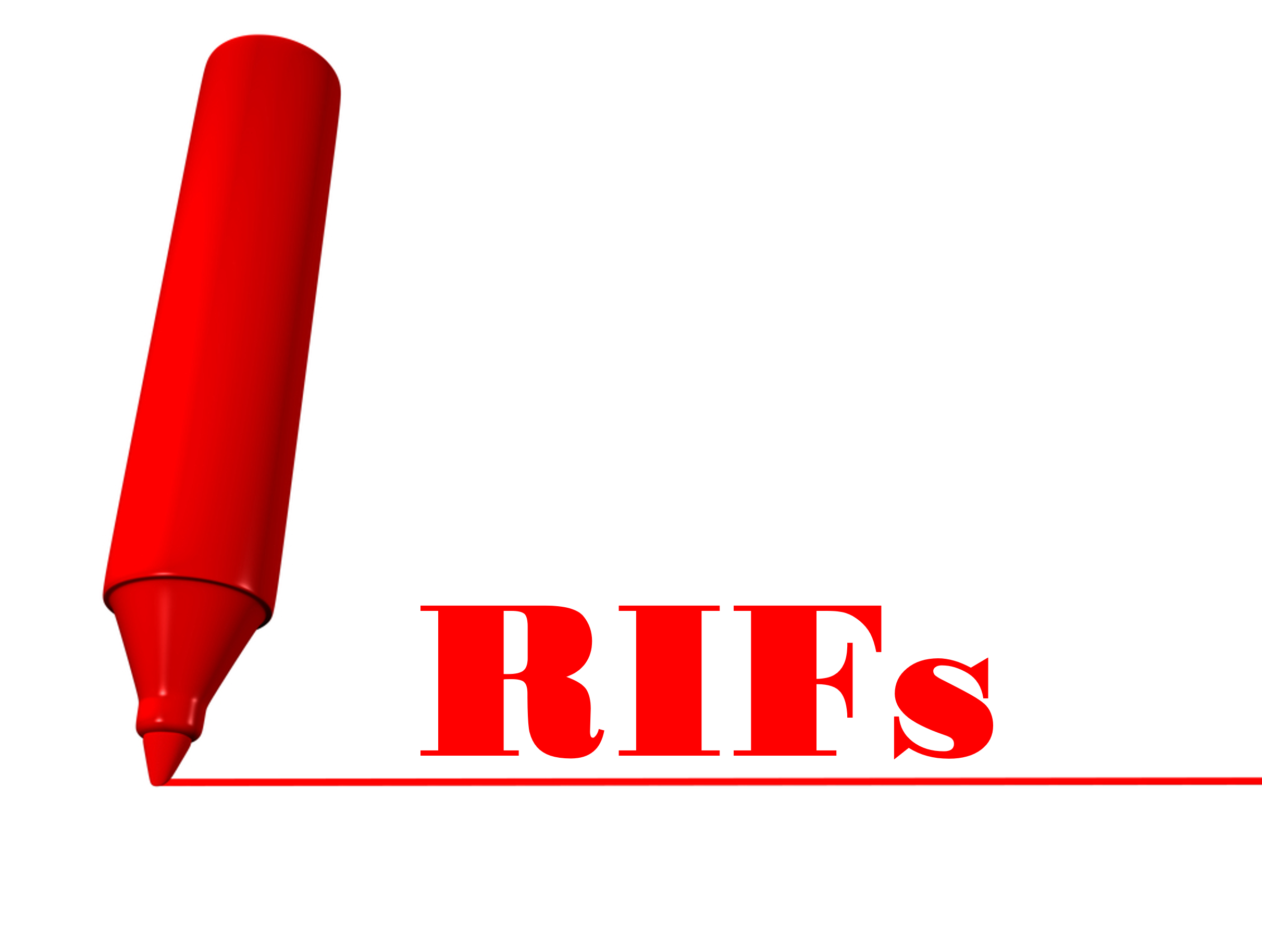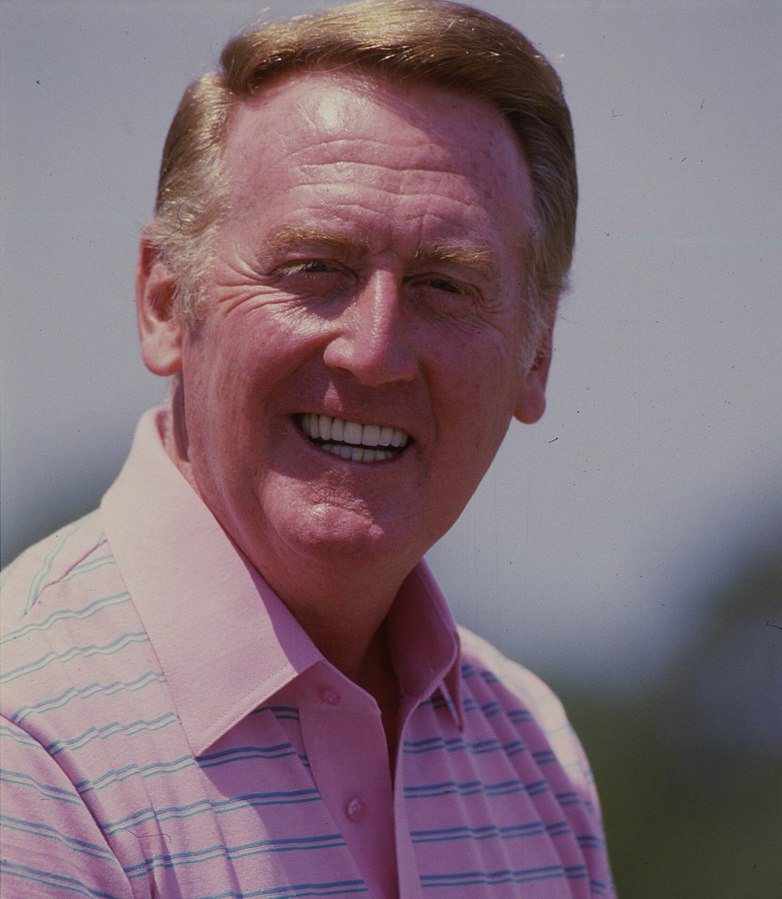
The expense cutting continues, and sadly, it continues to focus on talent. Far be it from me to suggest that RIFs – a nice way of saying job terminations – should come from other departments at stations rather than the air studio.
But it is mind boggling these periodic cuts keep impacting on-air talent – the folks who generate loyalty, familiarity, and the personalization of brands.
For years, broadcast execs have reminded Wall Street, agencies, media buyers, and anyone who would listen that on-air personalities are what separates radio stations from algorithmic, faceless streaming services like Spotify and Pandora.
Yet, when it comes time for cuts, it’s the people behind the mic who seem to always end up in the crosshairs.
And now radio cost-cutting is making its way into a different arena – radio play-by-play broadcasters. They’re the teams that find a way to magically describe what’s happening on the field, the diamond, the court, and the ice.
They are painting pictures with their words as they’ve done over the airwaves for more than a century. In fact, the first known coverage of a sporting event over the radio airwaves occurred when KDKA in Pittsburgh broadcast a boxing match between a couple of pugilists – 101 years ago.
Since then, radio play-by-play has become an art form. And some of the most talented broadcasters have sat behind the mic and brought America sports over the radio airwaves.

In fact, that was Ronald Reagan’s forte, long before he went into politics in California, and ended up in the White House. He made his early reputation as a broadcaster covering games on WHO/Des Moines. President Reagan had fond memories of those early days when he was forced to provide – or fake – his own play-by-play as the pitches came off the tickertape.
Through the years, some of the greatest broadcasters of all time used their voices to bring us up close and personal with games we could not see. Mel Allen, Harry Caray, John Madden, Red Barber, Phil Rizzuto – the list goes on and on.
 For Detroiters, it was Ernie Harwell, the gentleman who brought the Motor City his beloved Tigers, providing all his down home brilliance for decades.
For Detroiters, it was Ernie Harwell, the gentleman who brought the Motor City his beloved Tigers, providing all his down home brilliance for decades.
Detroit baseball fans of all ages and generations remember Ernie for his great calls, including those iconic World Series victories in ’68 over the Cardinals, and again in ’84 versus the Padres.
Mitch Albom even wrote a play titled “Ernie!” that has enjoyed many successful runs in theaters in the Detroit area.
Ernie was so well thought of, his statue (pictured) graces the entrance way to the Tigers’ downtown Detroit home, Comerica Park, giving millions of fans the opportunity to remember just how memorable he made those thousands of baseball games.
For a radio broadcaster, it doesn’t get any better than that.
True sports play-by-play aficionados, however, are wondering why it’s taken me so long to pay homage to perhaps of the greatest of them all.
Best known for his brilliant coverage of the Los Angeles Dodgers, including when they were in Brooklyn more than a half century ago, Scully’s voice was synonymous with the team.
He called Dodger games for an amazing 67 seasons, dating all the way back to 1950. Scully’s voice, his descriptions, his charm, his pauses all contributed to the man’s immense legend. To hear Scully call a baseball game was akin to a poet laureate reciting a beautiful verse.
Scully passed away earlier this month at the ripe old age of 94, his legacy intact. Scully has been feted with just about every important plaque or trophy, including the Presidential Medal of Freedom and a star on the Hollywood Walk of Fame.
But to truly honor this icon, and pay respect to his peers – all those radio play-by-play announcers – before and since would be appropriate. Most of us will not be able to personally attend most games. We depend on the eyes, ears, and soul of the Vin Scully’s in every market to bring us these games.
That just became more difficult for Portland Trail Blazers fans, especially the thousands who enjoy their NBA games on radio and TV. That’s because starting this season, the team is going to save money on airfare, hotels, and food by leaving their broadcasters home.
There will be play-by-play coverage of Blazers games. It’s just that the announcing teams for both the TV and radio broadcasts will be watching the games on television – just like you and me. The play-by-play staff will not be joining the team for road trips in an effort to save top-line expenses.
Oregon Live reporter Bill Oram reports the move is all about cost-cutting. The team hopes fans won’t be the wiser if the play-by-play teams aren’t sitting courtside, but instead are calling the games from an austere studio, their eyes trained on a big-screen TV.
Asking Blazers broadcasters to call road games from home will absolutely gut the fan viewing experience. Jody Allen’s team needs to scrap this plan — now. https://t.co/Z8yNLDytxZ pic.twitter.com/m6z4bI4Rex
— Bill Oram (@billoram) August 19, 2022
According to the afternoon sportstalk show on KPOJ (Rip City Radio) Dwight James and Chad Doing, the decision by the Blazers’ brass isn’t a done deal – yet.
But according to the team’s president of business, Dewayne Hankins, these away game broadcasts will focus on stats, and will “incorporate all the lessons we’ve learned through doing remote broadcasts during COVID-19 over the last two years.”
But as Oram points out, the pandemic broadcasts left much to be desired, omitting important details and insights that only on-site announcers could pick up.
Not to mention the sounds, color, smells, and details that made Vin Scully a superstar, and paints those all-important pictures for the fan base.
To a corporate executive, this might seem like another example of pulling a fast one over on the fans. You can hear one say to the other on a conference call, “They probably won’t even notice it.”
But these moments where organizations cheap out are becoming less isolated with each passing year. The Toronto Blue Jays dumped their radio commentators, letting the TV team cover both. I blogged about that one as Rush front man Geddy Lee (pictured) turned out to be one of the loudest opposition voices.
letting the TV team cover both. I blogged about that one as Rush front man Geddy Lee (pictured) turned out to be one of the loudest opposition voices.
Geddy explained it this way:
“There are nuances and descriptors that radio broadcasters share with their audiences that are simply not the same as a cabal of TV announcers, no matter how good they are. It’s a time-honored craft that requires a special ability to bring to life what we at home simply cannot see. This is a bad and regrettable decision.”
He’s right, of course. But maybe you can’t expect a bunch of guys running a sports franchise to “get” it.
A year earlier, the Orlando Magic ingeniously saved money by terminating their entire radio team, including the Spanish language broadcasters, opting to just provide the TV side of game coverage on the radio broadcasts.
And let’s not forget the Oakland A’s. Back in 2020, the team ended their radio relationship altogether, opting instead to stream their games on their branded A Cast.
That harebrained experiment lasted just six games before the team found a radio affiliate in the Bay Area.
But it’s not hard to detect a pattern as well-heeled sports franchises increasingly conclude there’s budgetary fat and waste in the play-by-play column of their spreadsheets, especially the radio broadcasts. After all, “we’ve got a business to run.”
 And when radio companies themselves continue to schedule their well-publicized RIFs, often like clockwork, why shouldn’t the sports teams follow suit?
And when radio companies themselves continue to schedule their well-publicized RIFs, often like clockwork, why shouldn’t the sports teams follow suit?
It says something about the value – or lack thereof – of personalities and announcing teams – when broadcasters cavalierly let them go – in groups – even as fans howl in protest. After all, there’s the expected blowback on social media, but it always fades after a few days.
These belt-tightening moves are a complete disregard for the art of the sports broadcast, meaningful perhaps for hardcore fans, but gradually becoming another cuttable expense by team ownership.
And radio broadcasters themselves.
After all, will anyone even notice?
- Media And Technology In 2025: Believe It Or Not! - April 18, 2025
- In Radio, You Just Never Know - April 17, 2025
- The Secret To Making A Great Podcast (And Great Radio) - April 16, 2025





I agree with everything said here, but one aspect is missing. The corporate execs (beholden and directed by their private equity overlords, especially in radio) are also looking at the declining revenues of these radio broadcasts. As revenues decline, their thinking is, so must expenses. The cuts have been going on for over a decade even before revenues began to decline. It’s just that no one was paying attention when the first cuts were being made years ago. Listeners, viewers and fans, sadly, are irrelevant in today’s mediums.
Love your daily blogs!
Good points all, Darryl. It’s the opposite of “all boats rise,” and begs the question, “What else can we cut?” I think we’re seeing – and hearing – the answers.
Income will continue to decline unless radio becomes live and local again!
Bob, I’m with you on this!
Scully, for sure. And I miss Al MIchaels. Sometimes these days its hard to find a play by play person or team that is not just skin deep with no depth. And then you have the word-jockeys who are jousting to out-clever each other. And speaking of skin…. No matter how good you cheap out, there’s always something that blows your cover and shows everybody you (corporate head-count cutters) have no real skin in the game. Another word for it is authenticity.
Yes, and the lack of same is more and more apparent to these veteran ears. I continue to learn from some of the great play-by-play practitioners out there – as well as those doing color. I know I’m annoyingly team centric, but Dan Dickerson who does the radio PBP for the Tigers here in Detroit is one of the best of his generation. On the TV side, former players Jack Morris, Kirk Gibson, and Craig Monroe are making an otherwise unbearable season interesting. There are still quality analysts out there – you just have to look. Thanks, Lalo.
Happily, the great Ernie Harwell recorded an “Ernie Harwell Audio Scrapbook” prior to his passing — a multi-CD package he autographed for me. There will never be an equal, but on the bright side (for him), at least he was able to leave the air on his own terms.
Mr. Harwell visit the station where I worked back in the 1990s and was a featured guest on one of the talk shows I produced in a small restaurant across from where Comerica Park would soon be built. Such humble talent is rare today, yet the broadcast infrastructure that supported and nurtured it is also going away. Those of us who remember the way it was don’t like it a bit, yet everything in the universe does have a beginning and end. The end has already come for “radio the way we knew it” more than once. Will it come back in a completely new and unrecognizable incarnation? Only time will tell.
My wife bought me that package for a birthday that also included tickets to see “Ernie” (the play) in downtown Detroit. He was incomparable. Thanks for reaching out.
When you look at the overall expense of moving a team, how much does it REALLY cost to bring the radio guys along? The plane is going to Miami, Atlanta, Houston and Philly with or without the radio crew.
What else does it take then? An extra hotel room or two for them?
Internet for the Comrex to get audio back to the control room is usually provided in the areas, so there’s no expense there.
If this is the way they are gonna “cut” expenses, they are gonna be disappointed with the results.
Carter, I believe the phrase is “nickel and diming” and that’s exactly what’s going on. And because they don’t truly buy into the fact that radio is truly a different animal, a bean counter is asking creative questions. All in all, not good.
Enjoy your posts, thanx. I remember the game when Ernie Harwell filled in for Harry Caray (when he was out.) The distinctive way he said Jamie Moyer! And only heard Vin when he was doing the national broadcast. He could weave a story between calling the plays over multiple players/innings. Baseball is just as enjoyable to listen to on the radio as watching TV. Sports play by play is what makes radio live and local. Doesn’t matter if it’s a 50,000 watt or small town station. So sad to read about this development.
Jerry, good points all. Those PBP broadcasts of the hometown team goes a long way toward making a station be local. As for Ernie, I still hear “He stood there like the house beside the road” when it was a called third strike. As for Jamie Moyer, I’m assuming it sound like “Moy-yuh.” Thanks for commenting, Jerry.
Reminds me when I used to run sound for some local college basketball games. Maybe it’s just the radio nerd in me but the pictures these guys could paint so brilliantly and effortlessly with words, I was more in awe of them calling the games than the games themselves. True professionals. Artists with words. Irreplaceable…as we may one day find out too late.
I’m one of those people who sometimes prefers the radio broadcast to watching a game on TV. Maybe I’m showing my age, but some of the truly gifted PBP pros can truly make a game come to life. Thanks, Dave.
Update: after public and local media outcry, the Trail Blazers have relented and will send their radio broadcast team on road trips. (BTW, the article mentioned the Orlando Magic simulcasting on TV and radio as a cost-cutting measure, but that is hardly new. Many NHL teams did that in the 70s and 80s as TV games became broadcast more frequently. When I moved to Pittsburgh in 1971, the Pirates baseball club used to rotate the two-man broadcast team of Bob Prince and Nellie King between radio and TV with King working the middle innings on TV and “The Gunner” working the early and late innings. That was back in the day when local TV didn’t broadcast all of a team’s road games and rarely broadcast a home game, so from an economic standpoint, it didn’t justify separate broadcast teams at the time.)
Thanks for this update. I hope in our small way, our post made a moral contribution to this cause. I will tell you the original post still has lots of life & is being viewed & shared.
To stave off the loss of PBP radio in smaller markets, look to your sales people. Selling high school sports and college locally takes a special disciplne, door-to-door selling to ma-pa owned businesses in your communities. Gotta call on the businesses whose fathers, mothers, aunts, uncles take pride in the teams their sons, daughters, nephews, nieces play on. Then ask the business owners to record their commercial in our magical studio, sure to generate “Herman, I heard you on WOSH Friday night!” comments (and a few more sales). All annuals, covering all sports you broadcast. Renewals year after year usually pretty good.
Leo, you are SO right. But I know aa lot of PDs read your comments and wonder where to find more Leo Edelstein’s. And I love your email homage to Mr. Durocher.
So it was early ’70s and the little station I ran in Salt Lake carried the Salt Lake Angels baseball team. Augie Navaro was our seasoned PBP announcer with the gravitas and voice you’d expect in that role. But for away games we relied on the AP wire (inning by inning reports), background crowd noise on a huge cart that ran continously and a pair of wooden dowels that Augies would strike together when there was a hit. He completely made up everything that happened on the field…and when the wire service slowed down there was always a “rain delay”. No one complained! I’m not sure anyone listened either.
Holy Ronald Reagan! Thanks for relating that story, Jackson.
I think one of the reasons announcers are deemed expendable is because of the vanilla broadcasts they are forced to churn out. The money has gotten large enough to where the last thing a team, school, or station wants is a PBP guy to piss off a sponsor or protest group. It’s not worth it to them to build the brand of Scully or Harwell on their backs from their perspective. They don’t want to build legendary broadcasters but bigger bottom lines. Great piece, thank you.
Thank for weighing in, Jeffrie.